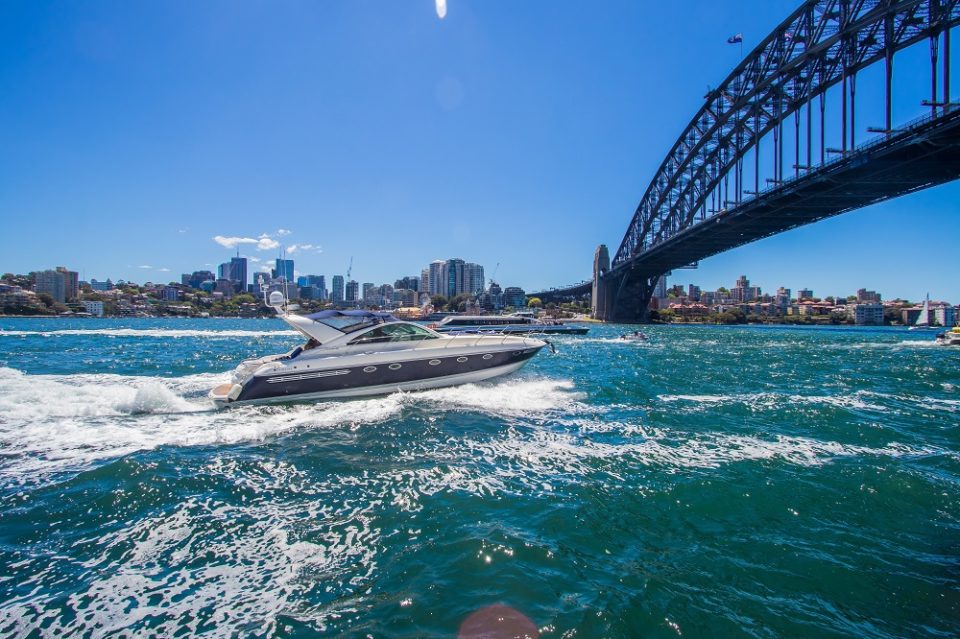
Buying a good-sized boat isn’t so different from buying a home or other large asset. Like a house, you can pay cash, but you might not want to. And that’s one place where buying a yacht gets a little different. The fundamentals are the same, but the devil can be in the details.
Yacht financing: why is it sometimes complicated?
Most banks don’t want to finance boats over twenty years old, and they’re very hesitant to finance full-time marina liveaboards and can be difficult about used boats. Why? It’s all a matter of risk – boats are more risky assets than houses and they can cost more.
While your house and your boat can both catch on fire, you can’t sail your house away. It can get robbed or damaged, but not stolen or sunk. The lifespan of a house is better known and understood, so securing a loan with a fixed, long-term item like real estate is simpler.
Approvals for loans just aren’t as straight-forward. It takes more than just a sterling credit record and demonstrable income; you need to choose a boat that a bank will finance.
As an added step, like a house, you must insure a financed yacht. But no one will deny you home insurance because you don’t have the experience and skills to operate your house. That can happen if you try to buy more boat than you can handle.
Yacht Financing: the first step to become a yacht owner

The advantages of financing a yacht the same as any large purchase like a house or car. You don’t have to put out an enormous amount of money up front, instead you take on a monthly payment. This gives you better cash flow, which you can use to operate the yacht, invest the money, or use it for something else.
There’s a cost – the interest and fees attached to financing, as well as the mandatory requirements like insurance and a good quality pre-purchase survey. But for most people, financing their yacht lets them by more boat now by spreading the cost over years of use.
How do people usually finance their yacht?
At the bottom of any boat financing is a bank, but the path you take to get to that bank and which bank you choose will vary with your boat choice and situation. Some banks will get better results than others, or may have lower costs depending on you and the yacht.
Boat loans with regular banks: a good option to finance a small yacht
Because of the challenges and risks of boat purchases, most retail banks prefer simple boat loans and deals. If you’re buying a new, modest-sized boat from a dealer, then your regular bank (Revolut or N26) may be the best choice for your boat loan. You may get rate discounts from your bundled business, and you have an established relationship with the bank which may help with approvals. But they aren’t the best option for more unusual deals.
Read also: How to buy a yacht? Our guide for first time yacht owners
Marine Lenders: the specialists to finance bigger boats
Some banks focus on marine lending, and bigger banks have divisions within bank which focus on boat loans. If you’re financing a used or a very large boat, seeking a marine specialist may be a better option. Especially if your regular bank isn’t interested in financing your choice.
These lenders have a better understanding of used boat values and ownership risks, and will work with a buyer to get around some sticking points of yacht age or intended use. They may also offer more competitive rates because they understand the risks better than retail banks.
Financing through a boat dealer: a good option when you don’t know how to finance your yacht
When buying a new boat, dealer financing is an attractive, easy option. The dealer has a relationship with a bank or loan broker, and they’ll take care of everything for you. Like auto dealers, they may even have incentives if you’re buying during a boat show or special promotion. Just read the fine print to make sure there are no hidden costs or higher rates than a straight bank loan.
Unsecured or non-boat loan: not the best to finance a yacht, but something to consider if it’s your only option
For those who can not secure a boat loan for an older or live-aboard boat, an unsecured loan is another option. The interest rate is higher with no underlying collateral asset, but you can use the money for whatever you want. Another alternative is a home equity loan, though you probably can not deduct interest on it you use it to buy a boat; consult your tax advisor.
Boat loan brokers: a good help to browse who can help pay for your yacht
Finding specialized marine lenders isn’t so easy for the average boat buyer, and many specialized boat finance companies can shop your boat to many banks to find a deal for you. This usually costs you nothing as they earn commissions and fees from banks for the loans they place. It expands the options, especially with a used boat or one you want to occupy full time. Since they check multiple banks, they should get you a decent rate if one is available.
Buying a yacht with cash: always on the table when buying a yacht (if you can afford it)
Cash is always an option, but make sure you don’t leave yourself short when it comes time to pay for insurance, dockage, fuel, repairs, and maintenance. It is the quickest and simplest way for any transaction since we take banks out of the mix. For older boats with significant value and small used boats, it may be your only option.
Read also: 5 tips for buying a second hand yacht
Share ownership and leasing: two alternative ownerships that ease financing
“Leasing” a boat like leasing a car isn’t practical. A car lease finances the drop in value of the car from purchase to lease end, with an option to buy out the future value of the car. Future boat values are far less predictable than car values, so a boat “lease” usually refers to a long-term rental or charter.
That doesn’t mean it’s not a viable way to get a boat with monthly payments and no cash outlay. But it will not be an ownership stake in the boat, so you can’t make modifications, and in most cases you won’t have a fixed buy-out at the end if you want to keep the boat.
Several models of “shared ownership” or “fractional ownership” are another way to get a boat without the upfront cash outlay and monthly payments. Sometimes you take on partners for your boat and share it, or you take a share in a pool of boats that you may use. But you won’t have exclusive use of the boat.
Read also: Fractional yacht ownership explained
What you need to be eligible for a yacht financing loan

For most individual purchases, the loan application process is like any loan. But if you are buying a boat for a commercial or semi-commercial reason or with a corporate ownership, it can take a little more paperwork.
The basic list if information should include the following. Depending on the size of the loan, you may need more or less documentation and evidence.
If you are applying with a corporate ownership, they will also need information about majority partners or shareholders and copies of corporate documents.
A good credit score: always essential when borrowing money
Whoever is signing the note should have decent credit. You may get approved with lower credit, but you may get a higher interest rate on the loan.
Proof you have sufficient funds and good debt to income ratio
The bank wants to know you can repay the loan. To do this, you usually must show some source of income to cover the payments, and that you do not hold too much other debt relative to your household income.
Information about your yacht
Banks will “pre-approve” you for a dollar amount based on your credit and finances. However, they will not formally approve the loan until you pick the actual boat and give them details about its model, age, location, and condition.
Your business plan if you are buying a yacht for commercial purpose
If you will use business activity to pay for some or all of the yacht, the bank will want to know how you generate that income, and how you will pay the note if you do not.
An independent marine survey report to get valuation
Your surveyor should give you a valuation, but make sure that this is part of the survey up front. Some surveyors are reluctant to do this, but you have this number for the bank. They will not approve a loan for a yacht worth less than you are paying for it, only for what the valuation shows. You may have to cover any shortfalls valuation to close on the yacht.
Note that a boat which surveys for significantly less value than the price is a good boat to walk away from because you are overpaying. The bank is correct in refusing to finance it.
Proof of insurance
Boat registration doesn’t require insurance, but banks will want to see proof of a hull policy to protect their collateral. Plan before the closing to bind coverage effective on the closing date and use the binder as proof.
Read also: Brokerage Yacht Market In 2022 : A Review Of Key Trends And Developments
The key steps to getting a yacht loan

- Check if you / your legal structure is eligible for a yacht financing loan.
- Visit yachts you would like to buy and decide on your boat.
- Survey banks or talk to a loan broker to get an idea about rates and requirements. Ask about usual yacht financing terms, current rates, durations, and fees.
- Seek pre-approval for the asking price of the yacht, if you can (you can still offer less). You can get pre-approvals earlier, before you look at boats.
- Make your offer on the boat, subject to survey and suitable financing.
- Conduct your survey.
- Close on the boat – the boat broker, loan broker, and banks will handle most of the paperwork for you




